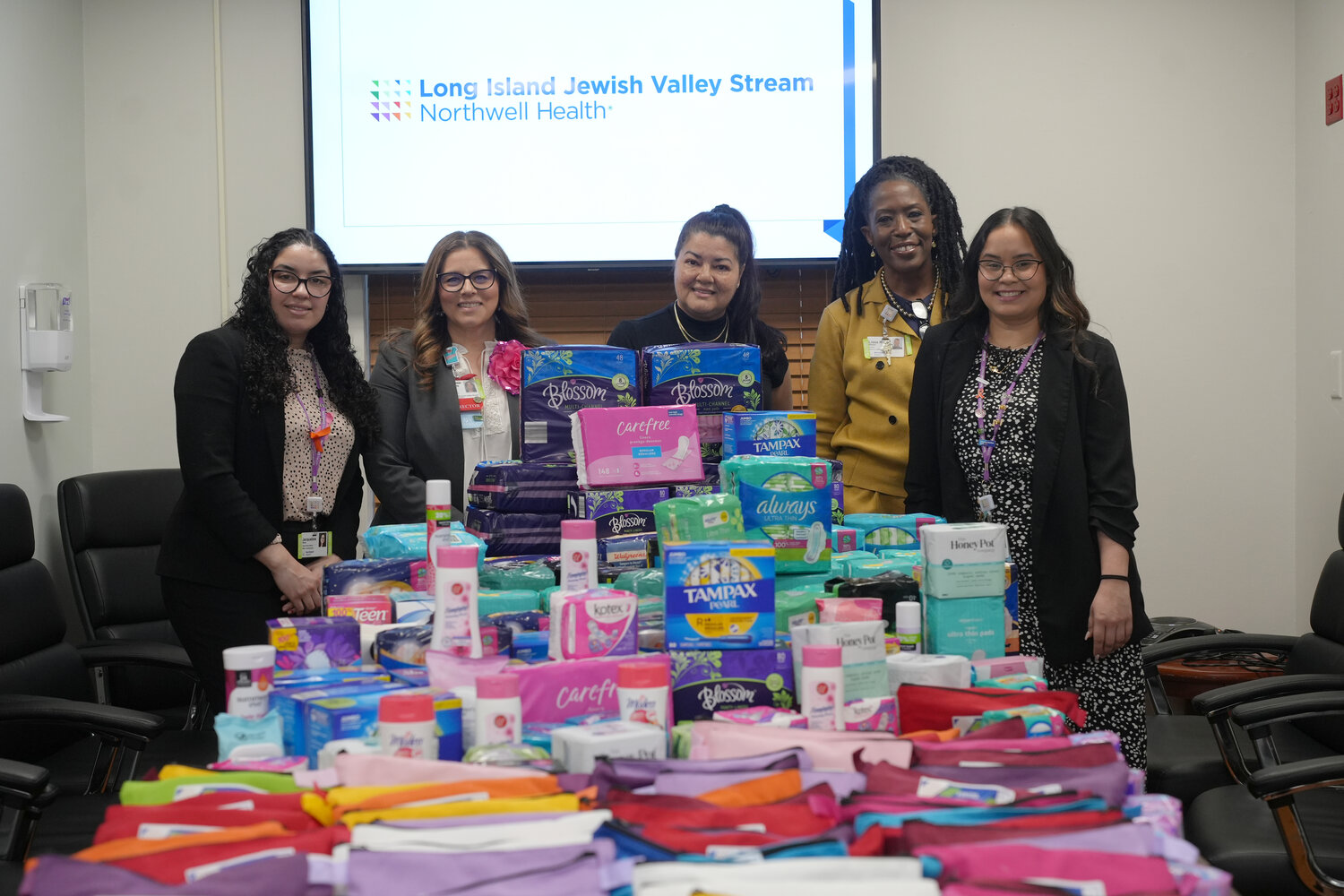See how Long Island Jewish Valley Stream Hospital is fighting 'period poverty' in 2024
Across communities, “period poverty” persists as a pressing concern, as many women struggle to access essential menstrual products due to prohibitive costs and other barriers.
This dilemma leaves many women’s menstrual needs unattended. Research estimates that around 11 million women in the U.S. struggle with some form of period poverty.
Inaccessibility to period products can bring life to a screeching halt for many women and girls, leading to disruptions in their daily lives, such as missing school or work.
Last year, through the Women’s Empowerment BERG program, Long Island Jewish Valley Stream Hospital donated close to 500 menstrual products for women at the Memorial Presbyterian Church food pantry in Roosevelt.
This year, Lissa Nelson, director of patient and customer experience at Long Island Jewish Valley Stream Hospital is partnering with new allies: Bonnie Sperry, Administrator for the National Council of Jewish Women- Peninsula Section; and Helena Little, President of the Nassau Alumni Chapter of Delta Sigma Theta Sorority Inc. They are the driving forces behind the latest period poverty initiative.
“We do public service and food pantries for families that are experiencing food insecurity and it was not lost on us that the majority of people who come to get food to feed their families are women,” Nelson said. “So if you are struggling to get food and to keep food on the table, you’re struggling also to buy these expensive feminine products that take care of themselves.
“And what happens many times is women put themselves last, the needs of the family first. And sometimes that leads to a lot of unsafe behaviors, in terms of women’s health, in substituting feminine products.”
Nelson said the partnership with Delta Sigma Theta Sorority Incorporated and the National Council of Jewish Women will help bring women’s issues to the forefront and make sure they have a platform.
The team members not only collected menstrual products but also garnered donations from the community.
Ranging from sanitary pads to menstrual cups, the products were turned into kits, designed to address the diverse needs of women experiencing economic hardship.
“Everyone thinks that this is sometimes just a global problem that other countries have to deal with,” Little said. “But it’s really in our own backyard. We felt that it was really important.”
Another objective is to break down barriers associated with discussions on women’s menstrual health and ensure equal access to period products for teenage girls and women in diverse environments, including schools, workplaces, and public spaces.
“It’s just a wonderful feeling to be able to make sure people, women, children, people can go to school, have what they need,” Sperry said. “And if they get their period in school, it’s there for that as well and they don’t have to worry.”
The collaborative effort reflects a collective determination to confront the pervasive issue of menstrual inequality. The period products will go to the food pantry at the United Methodist Church in Westbury and at another Long Island food pantry, ensuring these donated products reach women in underserved communities.
Have an opinion on this article? Send an email to jlasso@liherald.com.

 80.0°,
Partly Cloudy
80.0°,
Partly Cloudy 





